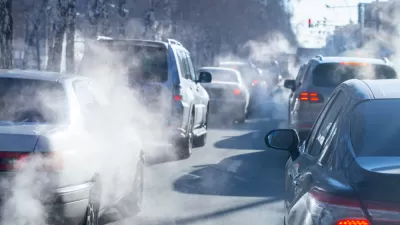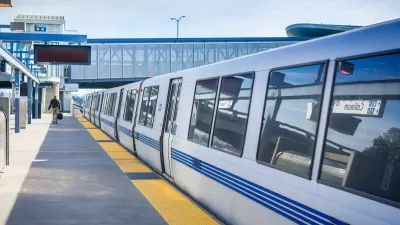A recent panel at the VerdeXchange Conference in Los Angeles featuring discussion by Rep. Earl Blumenauer (D-Oregon) and former Speaker of the California Assembly Robert Hertzberg on the state's role in influencing federal climate change legislation.
"First, the longest standing and most successful policy, originating in the early 1970s by the California Energy Commission, which set strict standards for appliance and building energy efficiency. This policy was so effective that since 1974, the California per-capita electrical consumption has held constant while the U.S. per-capita electric consumption, as a whole, has risen by 80 percent." -Robert Hertzberg
"I come from Oregon. I will tell you that 35 years ago we implemented legislation that dealt with statewide land-use planning, linking transportation to land use, and things that you are now being celebrated for enacting into law last year. But we're from Oregon. Who knew? If it happens in California, people pay attention." -Rep. Blumenauer
"Fourth, we need to change our focus to performance-based objectives. Many of our programs and processes are based on outmoded, narrow requirements that often work at cross-purposes to our goals. That means we're spending our time meeting requirements that may be obsolete instead of accomplishing our objectives. We need to set definite and comprehensive standards, then allow state and local governments the flexibility to meet those standards in ways that make the most sense for their situations." -Rep. Blumenauer
FULL STORY: VerdeXchange Panel: Can California’s Climate Change Initiatives Guide Federal Implementation?

Trump Administration Could Effectively End Housing Voucher Program
Federal officials are eyeing major cuts to the Section 8 program that helps millions of low-income households pay rent.

Planetizen Federal Action Tracker
A weekly monitor of how Trump’s orders and actions are impacting planners and planning in America.

Ken Jennings Launches Transit Web Series
The Jeopardy champ wants you to ride public transit.

California Invests Additional $5M in Electric School Buses
The state wants to electrify all of its school bus fleets by 2035.

Austin Launches $2M Homelessness Prevention Fund
A new grant program from the city’s Homeless Strategy Office will fund rental assistance and supportive services.

Alabama School Forestry Initiative Brings Trees to Schoolyards
Trees can improve physical and mental health for students and commnity members.
Urban Design for Planners 1: Software Tools
This six-course series explores essential urban design concepts using open source software and equips planners with the tools they need to participate fully in the urban design process.
Planning for Universal Design
Learn the tools for implementing Universal Design in planning regulations.
Ada County Highway District
Clanton & Associates, Inc.
Jessamine County Fiscal Court
Institute for Housing and Urban Development Studies (IHS)
City of Grandview
Harvard GSD Executive Education
Toledo-Lucas County Plan Commissions
Salt Lake City
NYU Wagner Graduate School of Public Service





























